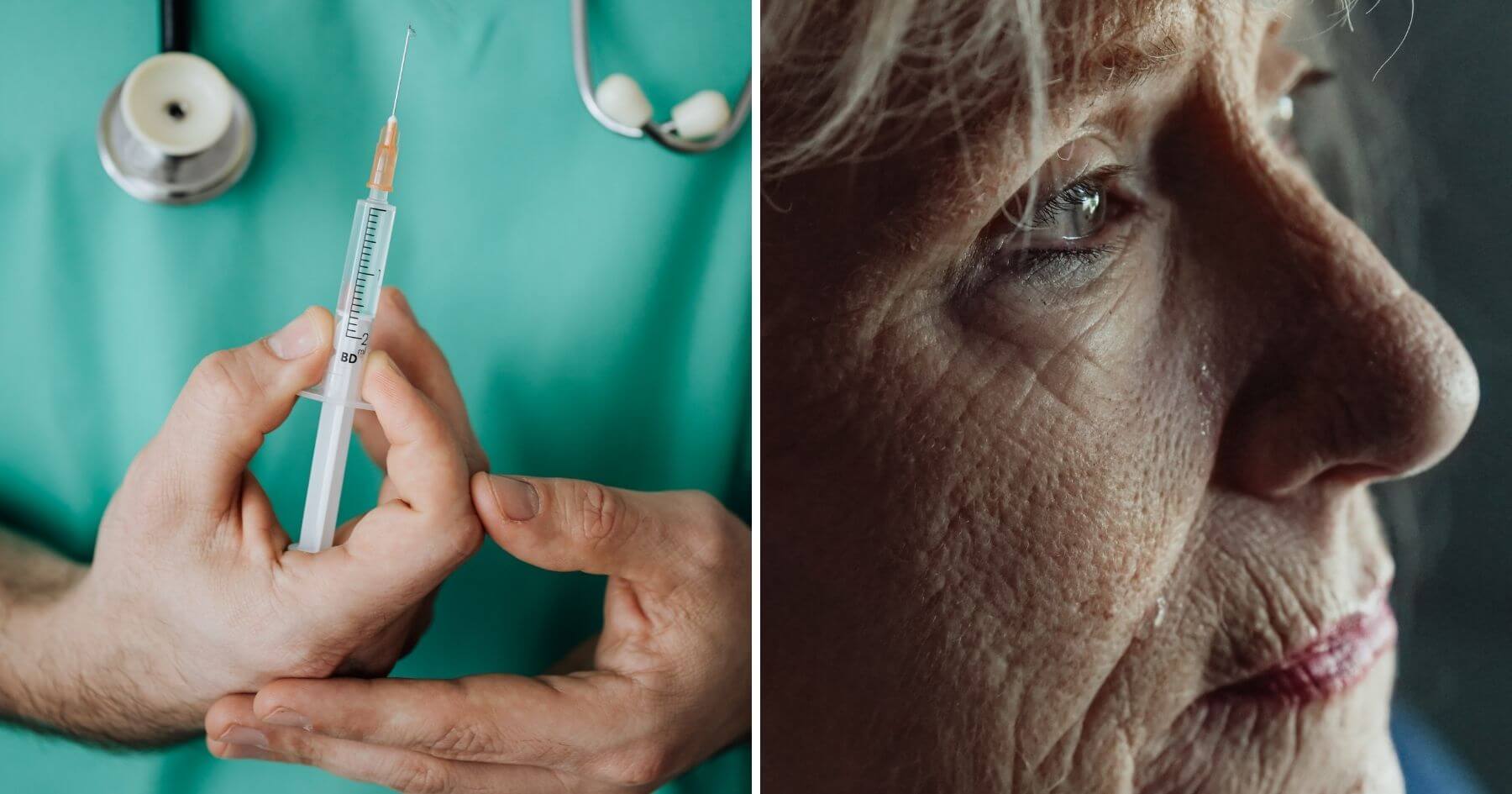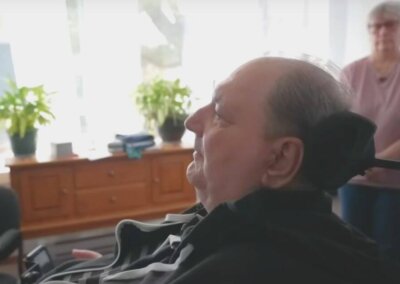A large group of MPs and peers have heard of the dangers of introducing assisted suicide and euthanasia from a group of doctors from countries that have already legalised assisted suicide or euthanasia.
The All-Party Parliamentary Group for Dying Well event, held on 7 September, was led by Crossbench Peer, Baroness Ilora Finlay.
The five physicians, two from Belgium, two from Oregon and one from Canada, all have extensive experience of practising medicine in jurisdictions where assisted suicide and/or euthanasia is permitted. These physicians were unanimous that the UK should not introduce assisted suicide.
Oregon
Dr Brick Lantz, orthopaedic surgeon and state director of the American Academy of Medical Ethics, argued that the fear of being a burden is one of the main motivations behind assisted suicide but that this fear was a psychological fear that could be treated.
He went on to say, however, that the safeguards in Oregon that are intended to protect the vulnerable do not work. “The safeguards in Oregon are not being followed. That includes the psychiatric referral, second opinion and the 6 month time estimate for death”, he said.
Due to the fact that assisted suicide legislation ‘unfairly targets’ the elderly and vulnerable, Dr Lantz argued that it is really a form of “elder abuse” and “disabled abuse”.
“Elder abuse” and “disabled abuse”.
He also emphasised that it is not uncommon for an assisted suicide to go wrong.
“The failures are brutal when someone fails assisted suicide and the failures are not infrequent. In fact, there was one that woke up from a coma after multiple days. There was a nurse at the bedside of one who ended up putting a plastic bag over the patient to kill the patient because they weren’t dying”, he said.
Dr Satya Chandaqiri, a physician in Oregon with 32 years experience, also pointed to the damaging effect that assisted suicide legislation has on the doctor-patient relationship. He pointed out that the median time of the doctor-patient relationship for those who ended their life through an assisted suicide was only 8 weeks. This is not nearly enough time for the doctor to properly evaluate the patient’s condition and needs to work out how best to help his patient.
Belgium
Both Professor Benoit Beuselinck, Oncologist at the Leuven University Hospital Belgium and Professor Timothy Devos, Haematologist at the same hospital, explained how the euthanasia law was only supposed to be used rarely, in the most extreme cases, but that now it is used routinely and is one of the leading causes of death in Belgium.
Officially, euthanasia accounts for 2.4% of all deaths, but Professor Beuselinck believes that is underreported and the true figure is more like 3.5%. Further, while most patients who die from euthanasia have cancer, it is becoming increasingly common for patients with non-terminal diseases to end their life in this way. The number of patients with non-terminal illnesses who die from euthanasia has more or less doubled in the last ten years and now accounts for about 17% of all euthanasia deaths.
As with other speakers, Professor Beuselinck showed that management of pain was not the primary motivation behind requests for euthanasia but rather psychological and social suffering. This would include mental exhaustion, psychological/existential suffering, fear of future suffering and social suffering.
“Doctors then become the judge of the meaningfulness of life” and “as a solution for these problems, they have to administer death”, Professor Beuselinck said.
“This is twice not their job”.
In terms of how euthanasia law has expanded to increase the number of those eligible, Professor Timothy Devos said: “We, as a society, went from tolerating euthanasia to normalising it and conferring upon it a moral acceptance and we have now reached the situation where euthanasia has become a banal and everyday fact of life”.
“You would be deluding yourself if you imagined that it would be any different in the UK”.
As in Oregon, Professor Devos described how the safeguards fail. In particular, something called the “palliative filter” was supposed to be applied to patients who were eligible for euthanasia. This meant that all palliative options must be discussed with the patient before the possibility of euthanasia.
Since the law was introduced in Belgium in 2002, Professor Devos said that “applying the palliative filter is attacked as a barrier impeding the patient to receive the euthanasia… now it is said that by proposing palliative care, doctors obstruct patients who want the euthanasia, it is even illegal because trying to convince a patient about a certain management is against the law on patients rights”.
“Beware that once the door for assisted suicide and euthanasia opens, it will always open more, that is the way it has gone in Belgium and in all the countries without exception where euthanasia has been legalised. You would be deluding yourself if you imagined that it would be any different in the UK”.
Canada
In 2016, Canada legalised assisted suicide for those for whom natural death was “reasonably foreseeable”, but as Dr Leonie Herx, palliative care physician in Ontario, explained, eligibility has expanded through widening interpretations of the legislation and court rulings. Earlier this year the requirement that death be “reasonably foreseeable” was removed entirely.
Currently, a parliamentary committee in Canada is examining whether the euthanasia law should expand to include mature minors (children and youth).
“At the outset, we were told in Canada that a carefully designed and monitored system of safeguards would limit harm and any wrongful risk of death of vulnerable persons. Yet every year there have been documented cases of non-compliance with safeguards and misapplication of both law and policy with respect to MAiD (Medical Assistance in Dying)”.
“In some places in our country, it is easier to access MAiD than it is to get a wheelchair”.
Dr Herx even said that there were documented cases of people being pressured to end their lives by euthanasia. “One example was Roger Foley from London [Ontario]… who required 24-hour care due to a neurological condition. While in hospital, Roger taped a hospital administrator suggesting he should get MAiD because of the costs of his care”.
“The Canadian Federal Minister for Disability Inclusion has said, “In some places in our country it is easier to access MAiD than it is to get a wheelchair”.
Finally, Dr Herx emphasised the danger that euthanasia legislation posed for doctors. She said: “Conscience is not about religion. It is about being able to practice medicine with professional and moral integrity, being able to provide recommendations within the scope of their speciality, in the patient’s best interest and within the medical standard of care”.
Because euthanasia has become a standard aspect of healthcare and there are no robust protections, doctors are finding it difficult not to participate in euthanasia in some way. Due to the pressure to participate in euthanasia in one way or another, many doctors are leaving palliative medicine altogether.
Right To Life UK spokesperson, Catherine Robinson, said: “Although these doctors are from different parts of the world, their experience is so similar. We would be foolish not to learn from it. If assisted suicide or euthanasia were introduced in the UK, no matter what safeguards or restrictions were put in place, it is very likely that these would erode over time. The most vulnerable in our society would increasingly be pressured to end their lives, doctors would be increasingly pressured to participate in the process and the number of people “choosing” to end their lives in this way would increase year on year”.












